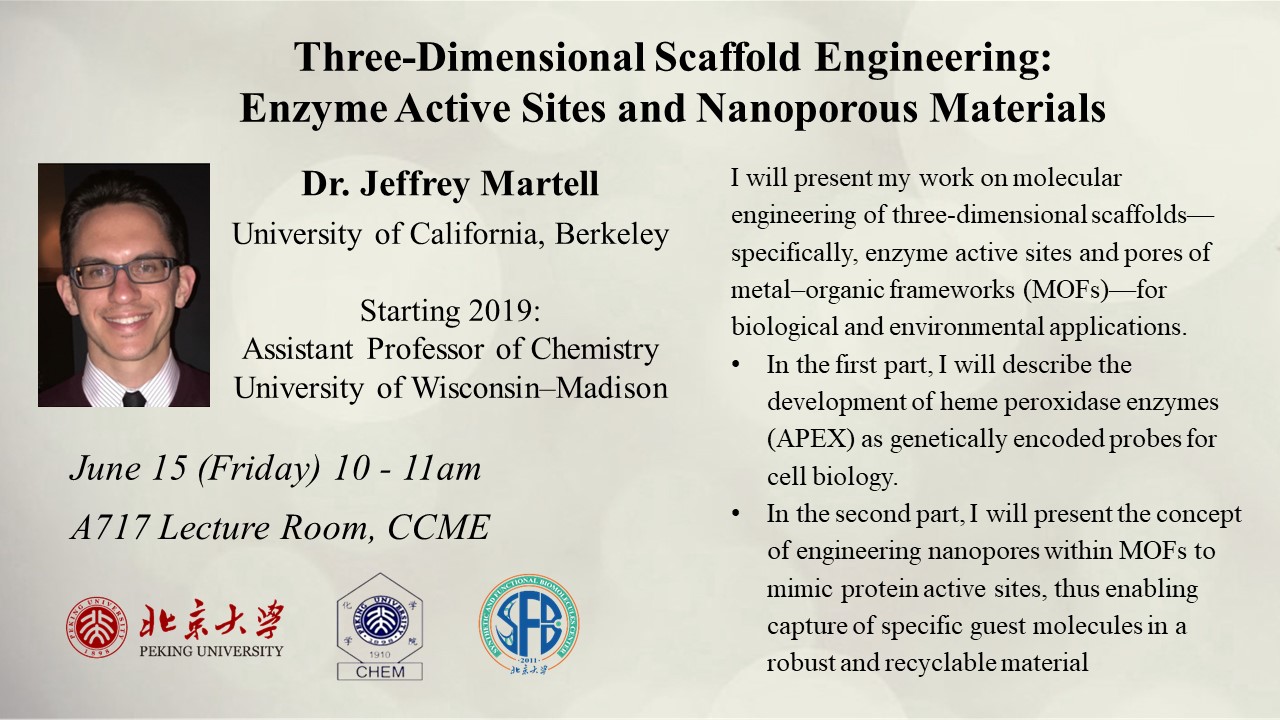报告人:Jeffrey Martell (University of Wisconsin-Madison)
时间:6月15日(周五)上午10:00 – 11:00
地点:A717报告厅
内容提要
I will present my work on molecular engineering of three-dimensional scaffolds—specifically, enzyme active sites and pores of metal–organic frameworks (MOFs)—for biological and environmental applications. In the first part, I will describe the development of heme peroxidase enzymes as genetically encoded probes for cell biology. Fluorescent proteins such as GFP have been revolutionary in allowing specific proteins to be tracked within living cells, but the resolution of fluorescence microscopy (~200 nm) is often inadequate for determining precise subcellular localization. Using rational enzyme engineering and directed evolution, I developed APEX (enhanced ascorbate peroxidase), a versatile genetic tag for electron microscopy (which provides spatial resolution <10 nm) and several additional applications in cell biology. In the second part, I will present the concept of engineering nanopores within MOFs to mimic protein active sites, thus enabling capture of specific guest molecules in a robust and recyclable material. I will demonstrate this concept in diamine-appended MOFs that capture carbon dioxide (CO2) by an unprecedented cooperative mechanism. The CO2 adsorption properties can be tuned through systematic variation of the diamine and framework, making these materials suitable for a variety of CO2 capture applications. I will also describe the development of a chiral MOF with high stability, permanent porosity, and a large pore diameter (1.8 nm)—promising characteristics for the separation of chiral pharmaceuticals. I discovered that this MOF is highly enantioselective toward chiral ammonium carbamates and elucidated the structural basis for this enantioselectivity, which involves numerous non-covalent guest–framework interactions.
报告人简介
Dr. Jeffrey Martell will join the Department of Chemistry at University of Wisconsin-Madison in 2019. He is currently a Miller Institute Research Fellow in the Department of Chemistry at University of California, Berkeley. He was an NDSEG fellow and NSF Graduate Research Fellow, and received his Ph.D. from Massachusetts Institute of Technology for studying chemical biology and developing genetically encoded probes for cell biology. His current research focuses on engineering nanopores within metal-organic frameworks to mimic protein active sites.
欢迎参加!
